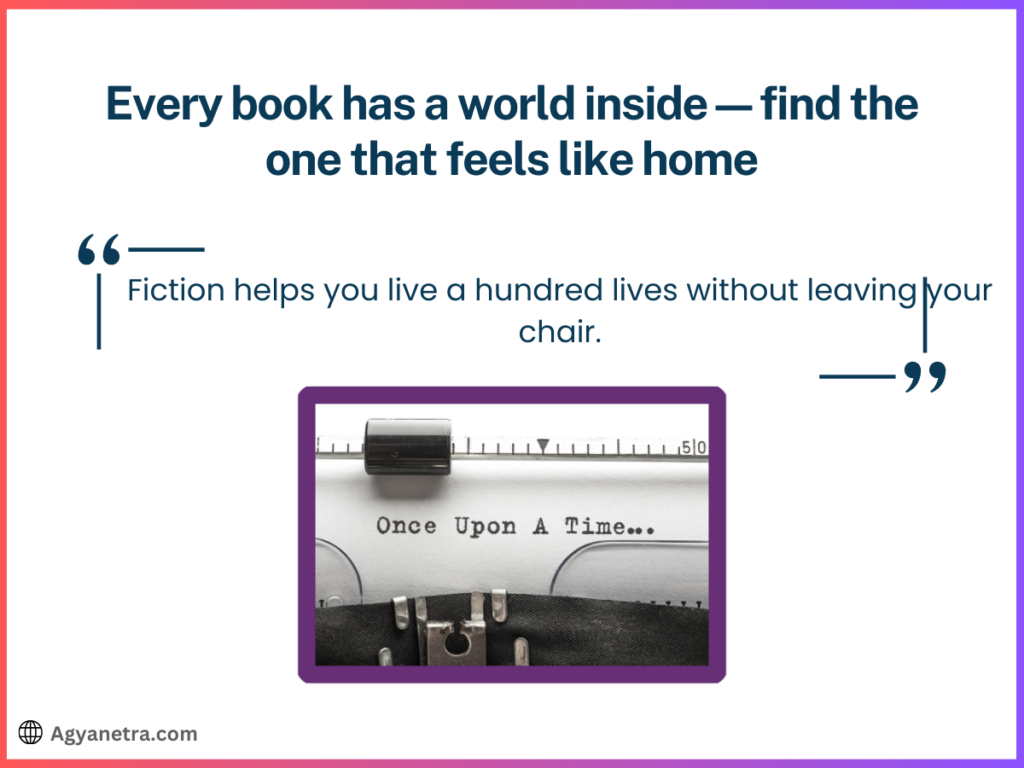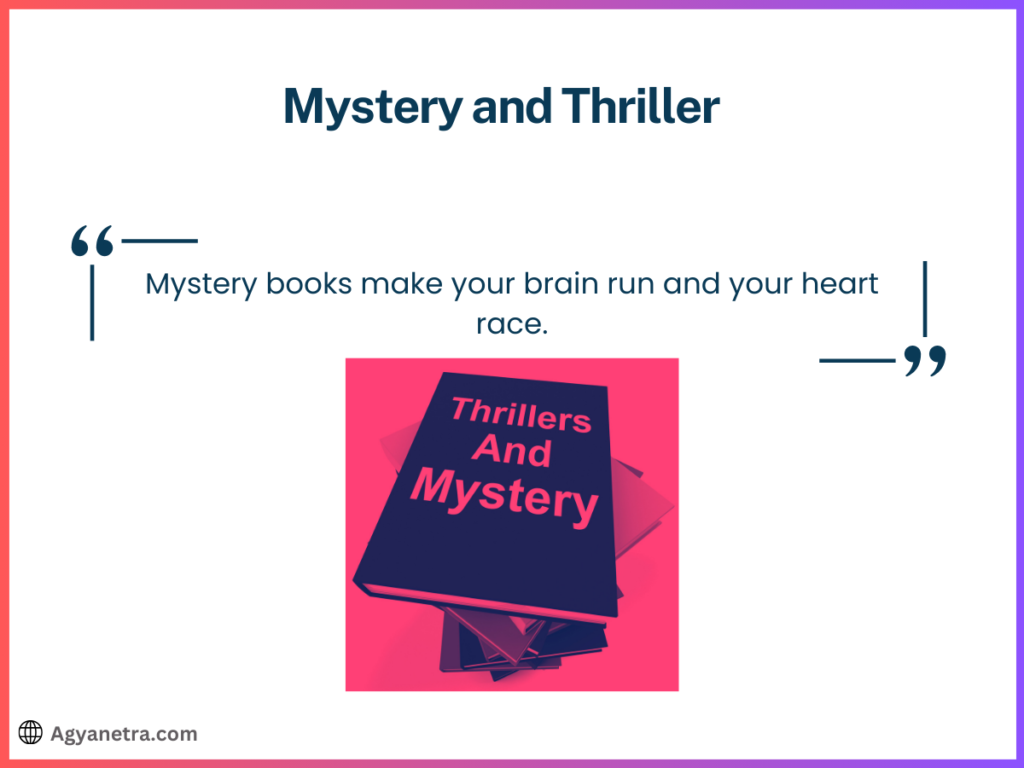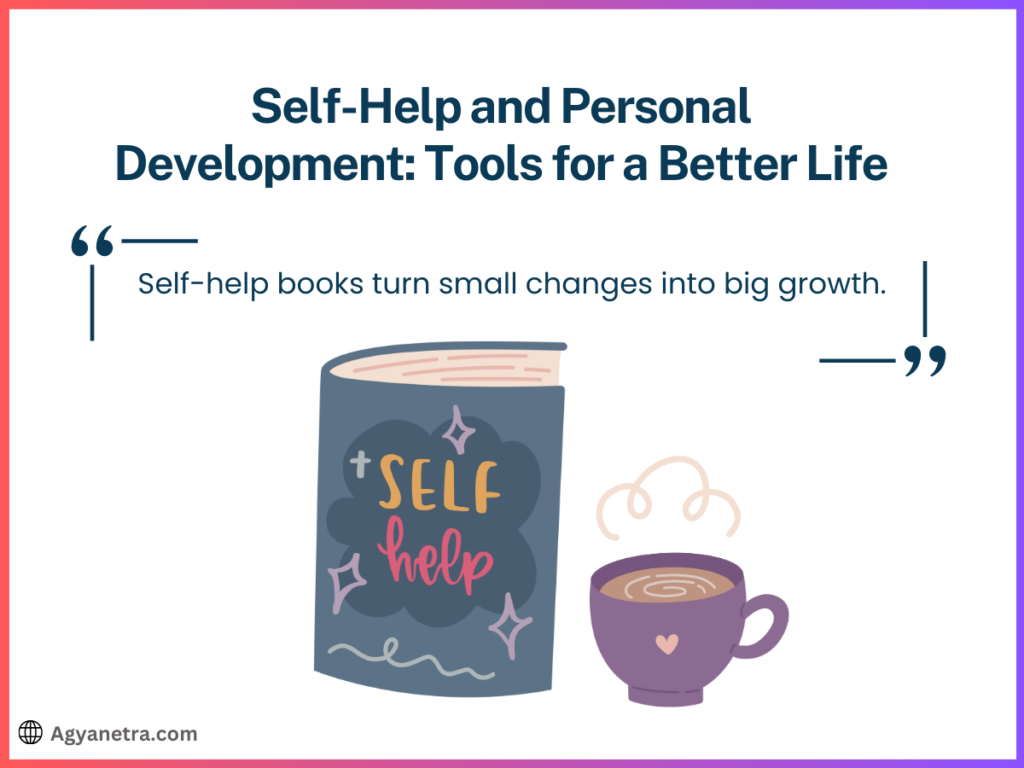Top 10 Most Popular Book Genres is more than just a list—it’s a doorway into the kinds of stories people all over the world love to read.
Whether you’re someone who enjoys a cozy romance, a spine-tingling mystery, or a true story that touches the heart, there’s something here for you.
Ever wondered why certain genres capture your attention more than others? Or which type of book might inspire or entertain you next?
Keep reading to explore the top book genres that continue to win hearts—and discover which one might just become your new favorite.
You’ll also pick up deeper insights along the way to help you choose your next great read.
Top 10 Most Popular Book Genres and Why They Matter
Books are more than just stories—they’re companions, teachers, and escape routes all in one.
With every turn of a page, readers get to experience new emotions, explore different worlds, and connect with characters in ways that feel deeply personal.

Whether you love fiction or nonfiction, thrillers or self-help books, there’s a genre that perfectly matches your taste, mood, or curiosity.
Let’s explore the top 10 most popular book genres, what makes them special, and how each can enrich your life—emotionally, mentally, and even spiritually.
1. Fiction: The Gateway to Imagination and Empathy

Fiction remains a favorite for readers of all ages. It opens the door to imagined worlds that feel as real as life itself.
Why Fiction Continues to Captivate
Fictional stories help us make sense of the world. They connect us to human experiences like love, loss, identity, and transformation.
Think about novels like The Kite Runner or The Alchemist—these books stay with readers for years.
Real-life scenario: A young adult going through a tough life transition might find peace in a coming-of-age story. Fiction becomes a mirror, reflecting their own journey back at them.
2. Mystery and Thriller: Keeping Readers on the Edge

If you’re someone who loves puzzles, plot twists, and high-stakes drama, mystery and thriller books are likely your go-to genre.
The Allure of Suspense and Surprise
These books hook readers with suspenseful plots, crime investigations, and unexpected turns. From Sherlock Holmes to Gone Girl, the thrill lies in solving the unknown.
Practical tip: Try reading a mystery book before bed—it sharpens your mind, much like solving a puzzle, and can even improve your critical thinking skills.
3. Romance: Stories That Stir the Heart

Romance novels are more than just love stories—they’re emotional journeys that explore relationships, personal growth, and vulnerability.
Why Love Stories Never Get Old
Whether it’s historical romance like Outlander or modern love like The Fault in Our Stars, readers are drawn to the hope, healing, and passion these stories offer.
Relatable insight: During emotionally challenging times, romance books offer comfort and remind us that love—despite its ups and downs—is worth the ride.
4. Fantasy: Escaping Into Magical Worlds
Fantasy invites readers to step into worlds of magic, mythical creatures, and epic quests. It’s the genre that lets your imagination run wild.
What Makes Fantasy So Addictive
Books like Harry Potter or The Lord of the Rings show how ordinary characters can rise to greatness in extraordinary worlds. Themes like bravery, destiny, and friendship give readers more than entertainment—they offer inspiration.
Practical step: Use fantasy books as a mental break. They can be a great stress reliever after a long day of work or study.
5. Science Fiction: Exploring the Future with Imagination
Sci-fi blends storytelling with scientific possibilities, often challenging us to think about technology, space, and human evolution.
Why Sci-Fi Expands Your Mind
Books like Dune or The Martian explore space travel, AI, time travel, and futuristic societies.
Sci-fi readers often enjoy reflecting on ethical questions and the future of humanity.
Real-world connection: If you love tech or astronomy, sci-fi is more than entertainment—it’s an invitation to imagine what’s next in our universe.
6. Horror: Feeling the Thrill of Fear from a Safe Distance
Horror books aren’t just about scares—they tap into psychological fears and take readers on an adrenaline-fueled ride.
Why Readers Love a Good Scare
From Dracula to The Shining, horror creates suspense, fear, and even catharsis. The genre allows us to safely face the things that scare us most.
Example: A college student reading horror during exam season may actually find it oddly comforting—because fictional fear can feel less overwhelming than real-life stress.
7. Historical Fiction: Revisiting the Past Through Powerful Stories

Historical fiction brings bygone eras to life by blending factual history with fictional storytelling.
Learning History Through Emotion and Character
Books like The Book Thief and All the Light We Cannot See show how people lived through wars, revolutions, and social change.
This genre makes history feel human, not just educational.
Actionable insight: Reading historical fiction before visiting a historical site can enhance your experience. You’ll feel more connected to the place through the lens of storytelling.
8. Young Adult (YA): Relatable Reads for All Ages
Although written for teenagers, YA books have universal themes that speak to readers across generations.
What Makes YA So Popular
YA books often tackle identity, belonging, peer pressure, and emotional growth.
Whether it’s Percy Jackson, The Hunger Games, or Eleanor & Park, these books combine fast-paced plots with deep emotional resonance.
Tip: YA is a great entry point for reluctant readers or those looking to get back into reading. The accessible language and relatable themes create an instant connection.
9. Self-Help and Personal Development: Tools for a Better Life

Self-help books focus on mental clarity, productivity, emotional healing, and goal-setting. They’re designed to empower readers to grow.
Why Self-Improvement Books Are in Demand
Books like Atomic Habits or The 7 Habits of Highly Effective People offer practical steps that readers can apply in daily life.
From building new habits to gaining confidence, these books make self-growth approachable.
Real-life example: Someone struggling with procrastination can use the “2-minute rule” from Atomic Habits to start small and stay consistent.
10. Non-Fiction: Real Stories with Real Impact
Non-fiction includes biographies, memoirs, and investigative works based on actual events and people.
Connecting with True Stories
Books like Educated, Becoming, and In Cold Blood help readers understand diverse life journeys and societal issues.
Non-fiction appeals to those curious about real lives, history, politics, and social justice.
Practical tip: Mix one non-fiction book into your monthly reading list—it can boost your awareness, inspire action, and give you fresh perspectives.
More Posts Like This
Top 5 Book Publishers in Mumbai
Top 5 Most Profitable Book Ideas for Aspiring Writers
Why These Book Genres Continue to Thrive
Each genre speaks to a different part of who we are. Fantasy appeals to our dreamer.
Mystery challenges our logic. Romance touches our emotions.
And nonfiction fuels our curiosity. That’s why these top 10 genres continue to thrive.
No matter where you are in life—whether you’re seeking love, healing from loss, chasing adventure, or simply looking to relax—there’s a genre that understands and supports you.
Even astrologically speaking, our zodiac signs influence our preferences.
A sensitive Pisces might lean into poetry or romance, while a curious Gemini could enjoy thrillers and non-fiction.
A bold Aries might crave horror or fantasy, while a grounded Taurus finds joy in historical fiction or self-help books focused on stability.
Reading is more than a hobby; it’s a personal journey.
And exploring the Top 10 Most Popular Book Genres gives you the perfect place to start that journey, whether you’re guided by your mood, mindset, or even your moon sign.
FAQs
What are the top 10 most popular book genres?
The top 10 most popular book genres are:
Fiction
Mystery and Thriller
Romance
Fantasy
Science Fiction (Sci-Fi)
Horror
Historical Fiction
Young Adult (YA)
Self-Help and Personal Development
Non-Fiction (Biographies, Memoirs, True Crime)
Why is fiction the most popular book genre?
Fiction is popular because it allows readers to explore different lives, emotions, and worlds. It builds empathy, entertains, and often reflects real-life situations in imaginative ways—making it relatable and timeless.
What genre should I read to relax and unwind?
To relax, try reading romance, light fiction, or self-help books focused on mindfulness. These genres offer emotional comfort, soothing narratives, and positive messages, making them perfect for stress relief.
Are self-help books really effective?
Yes, well-written self-help books can offer practical tools and motivation for personal growth. Books like Atomic Habits and The Power of Now help improve habits, mindset, and productivity when readers apply the lessons consistently.
Why is fantasy such a popular genre worldwide?
Fantasy is popular because it offers complete escape from reality. Readers enjoy magical worlds, heroic adventures, and imaginative storytelling that inspire courage, hope, and creativity.
Which book genre is best for emotional healing?
Romance, self-help, and inspirational fiction are great for emotional healing. They offer hope, relatable struggles, and lessons in self-love, helping readers cope with emotional ups and downs.
Are horror books good for mental stimulation?
Yes, horror books trigger intense emotional responses and require focus to follow suspenseful plots. They challenge your comfort zone and stimulate imagination, making them mentally engaging—especially for fans of psychological thrillers.
What age group reads Young Adult (YA) books?
YA books are written for teens (12–18), but many adults enjoy them too. Their relatable themes, fast pacing, and emotional depth make them appealing across age groups.

Vidushi Gupta is an accomplished writer and digital marketing expert with contributions to organizations like Miles Educomp and ICAI. She has authored nearly ten novels and worked as a Senior Content Writer and Digital Marketing Specialist at ESS Global and Shabd. Her Quora posts have amassed almost 20 million views, reflecting her belief in the transformative power of the written word.

